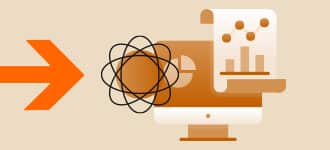Listen to this blog
Over the past few years, data science has emerged as one of the most alluring professions. One of the highest-paid positions in the IT sector is that of data scientist, which also provides a wealth of opportunities for skill development through numerous data science projects that use various types of data to tackle various challenges. This article will talk about how to switch to a data science job.
Can I switch my career to data science?
Are you interested in pursuing a data science career? If you are in the early years of your career, a career switch to data science will be extremely beneficial for you. Here are a few reasons why you should switch your career to data science:
- Data science has many uses
Data science has a wide range of applications. It is frequently employed in the banking, healthcare, consulting, and e-commerce sectors. The field of data science is quite diverse and will give you various opportunities.
- Data scientists have great prestige
Companies employ data scientists to make more informed business decisions. They rely on data scientists and their knowledge to give their customers better results.
- Data science will improve you as a person
Data science will not only assist you in advancing your job but also your personal development. It will help you adopt a mindset of problem-solving. You can benefit from the best of both worlds because many data science careers combine management and information technology.
How can I switch my career to data science?
The main dilemma is how to switch careers to data science effortlessly. Switching to data science can be a smooth transition if you follow the steps given below:
- Evaluate your current role and skills
The first thing you need to do is to assess your present skill set in light of your training and employment history. By understanding this, you can better define your options and identify your strengths and weaknesses, which can help you create a stronger transition strategy. Knowing your areas of strength can help you select places where you can excel because doing so will help you stand out from the crowd.
- Choose a suitable role in data science
A data scientist’s job role is flexible. Since data science environments are unique and unmatched, each data scientist will have a distinctive experience and understand their work differently. So while you make a career switch to data science, choosing the domains and the categories of data roles you want to work in is the first and most important stage in your journey to data science.
- Prepare a data science learning path
Data science is a heterogeneous field, and depending on the domain and key duties of the function, you will need to master a variety of technologies and abilities. However, there are fundamentals you can’t reasonably overlook, regardless of whether you want to become a data scientist, data analyst, or business analyst. Here are a few examples:
| Subject | Topics |
|---|---|
| Mathematics and Statistics | Linear algebra, differential calculus, inferential statistics, discrete mathematics, and calculus of variations |
| Programming | Data Input and Output, Dataframe Management, Loop Functions, Regular Expressions, Control Structures, and Machine Learning Algorithm Implementation |
| Data Engineering/Big Data | No SQL, Big Data Lakes, Hadoop Ecosystem (Hive, Pig, Sqoop, Flume), Apache Spark, and Spark MLLib |
| Business Intelligence | Oracle Fusion, SAP BI, Microsoft Power BI, Tableau, and SQL |
| Machine Learning | Modelling techniques include dimension reduction, feature engineering, classification, segmentation, regression, and segmentation. |
| Advanced Machine Learning | TensorFlow, Keras, Artificial Neural Networks, Deep Neural Networks, Convolutional Neural Networks, Autoencoders, and Reinforcement Learning |
| Domain Knowledge | Having a thorough awareness of the sector you work in and being aware of the business issues your organisation is attempting to address You must comprehend how the issue you resolve may affect the company. |
- Acquire technical and soft skills for a data science role
Since the nature of data science professions, candidates must be technically astute and have the essential soft qualities to succeed in their positions. Data scientists that possess soft skills are better able to make judgments, critically analyze circumstances, and communicate their discoveries and findings to the many teams they work with regularly.
The following are some of the most important soft skills you should develop during your transition:
- Communication skills
- Critical thinking
- Team player
- Business acumen
- Storytelling
- Practice with datasets
Putting your work into production, although one of the most significant industrial requirements, is always disregarded by newcomers to the field of data science. Deploying machine learning models as a web service, for instance, using the Flask web framework and hosting it on any cloud service like AWS, is a straightforward approach.
- Showcase your skills
Possibly the most important stage in your career shift is showcasing your skills. The most challenging part of your job hunt, especially if you are a fresher with no experience, is getting noticed because there are many great candidates. Building a skill-oriented portfolio while obtaining the necessary abilities for the job you want is one of the finest methods to stand out.
- Network with people
The most challenging aspect of finding a job in the highly competitive field of data science is figuring out how to pass the application screening. Developing a strong network is the greatest method to generate internal referrals.
- Apply for jobs
Since data science is always changing, developing learning habits will help you improve professionally and pick up new abilities is essential. Make sure to set aside time to frequently update and improve them. Demonstrating your talents and having the ideal resume and portfolio are equally important steps in your career advancement. After completing all of these stages, you should start your job search.
ALSO READ: Career options after an MBA in Data Science
Career switch from different roles
So, how to switch careers to data science? It’s not as difficult to do a career switch to data science from another field as many people believe. The following are a few jobs from which it is simple to transfer to becoming a data scientist:
Finance to data science
Don’t you think data science would be a good fit for the finance industry? Since it involves numbers, it fits the data science industry very well. Therefore, if you have a background in accounting or finance, you are already halfway to realizing your goal of obtaining a data science position. The majority (if not all) of the following qualities are required if you want to work as a data scientist in the financial industry:
- A degree in computer science, physics, engineering, mathematics, statistics, or a field with a lot of math.
- Knowledge of several programming languages, including C/C++, Matlab, Python, and/or Java.
- Good database abilities in any traditional RDBMS, including at least SQL programming (for example, MySQL, PostgreSQL).
- Ability to handle time-series data from Reuters, Bloomberg, or any other of the several financial data sources accessible.
HR to data science
In all honesty, when people hear about successful transitions from HR to data science, they are in awe. It makes sense to use your topic expertise if you already have significant HR experience. For instance, many larger businesses engage data scientists for “workforce analytics” in the HR sector to comprehend employee attrition, forecast ROIs, create leads, and enhance diversity measures.
Since universities and educational or behavioral health institutions all require “people skills” and a thorough understanding of behavioral psychology, models utilized for workforce analytics would also apply well to these settings.
Career transition from Software Engineering
You can consider becoming a data or machine learning engineer if you appreciate software engineering. You should work on the following abilities if you want to become a data scientist:
- Basic Probability and Statistics
- Modeling
- SQL
- Data Visualisation
- Reporting
- Communication
READ MORE: Career path in Data Science
Data science career for professionals in non-technical roles
How to switch to data science jobs from a non-technical background? It’s never too late to change your academic focus. One can start by comprehending how organizations use data and its industrial applications, even without any prior experience dealing with data. Then, one might design a programme to equip themselves with the necessary technical knowledge.
Here are a few things you should do to have a smooth transition from a non-tech background to becoming a data scientist:
- Start with learning Excel
Since it is primarily used to gather and store data, Excel is a fairly well-known piece of business software. Understanding how to manage and analyze data in Excel is an easier starting point for someone with a non-technical background and probably no programming knowledge. It will be a very important foundation for your career as a data scientist.
- Get to know Python
Although Power BI and Excel are excellent tools for data analysis and visualization, data scientists frequently employ the extensive range of packages in the Python programming language to carry out more complex descriptive, prescriptive, and predictive data analysis, including machine learning.
- Introduce yourself to Machine Learning
You might begin by studying popular supervised machine learning techniques for classification and regression (linear regression) (Logistic Regression). To apply these methods without writing code from scratch, you’ll need to be familiar with the scikit-learn package for Python.
- Understanding SQL software
You might want to consider learning SQL to work with relational databases once you’re more accustomed to working with data in Excel and other common data sources. As a data scientist, you will frequently interact with vast amounts of SQL data because businesses frequently use it to store structured data.
- Consider real-life projects
The key to landing a data science job at one of the top, well-known firms are gaining practice, training, and experience. Therefore, choosing more specialized project learning over academic learning is a surefire method to stand out from the crowd.
Career transition from mid-career roles
Switching a career has never been simple, especially in data science. It would take a tremendous deal of introspection, guidance, and fortitude, especially if you entered your first job with the expectation that you would advance rapidly.
You must first and foremost understand who you are. Your priorities, present work ambitions, and whether or not they are congruent must all be very obvious to you.
Planning your learning roadmap is another important step, especially if you’re entering a technical profession like data science for the first time. You’ll probably need to learn new skills, such as programming languages like Python, R, and SQL. You must also learn about other pertinent subjects, like statistics, machine learning, and deep learning.
Also, don’t anticipate things to go well during your entire job shift, either. There will be hiccups on the journey. You might not be selected for an interview or perform poorly on some technical tests. It’s possible to do poorly at an interview and lose the opportunity.
Career transition from early-career positions
When changing careers, it can feel like boarding a plane already taking off. Since the field of data science is still developing, many data scientists and machine learning engineers didn’t begin their careers in this direction.
Since you haven’t yet made a name for yourself in the industry you have been working in, switching from an early-career position to another profession can be relatively advantageous. At such times, learning all the abilities you need to succeed as a data scientist becomes simple.
ALSO READ: How to switch your career: things to consider
Bottom line
It will not be simple to make the career switch to data science because it calls for patience, consistency, and tenacity. However, with careful planning and perseverance, you will be able to reach your objective and secure your first position in the industry. With a variety of hands-on activities and real-world business situations, you will learn by doing as you go from the very fundamentals to advanced specialization.
If you want to make your career transition journey easy, you can try opting for MAHE’s (Manipal Academy of Higher Education) online data science course. These data science courses are provided on a platform called Online Manipal, which is considered to be one of the best distance learning platforms in India.
Become future-ready with our online M.Sc. in Data Science program





















